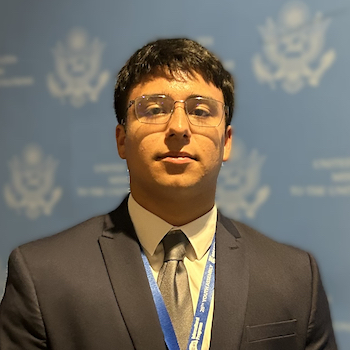
Mexico is Waging a ‘Fake’ Drug War
The Mexican drug war has been ongoing since the early 2000s. Since then, the focus of the drug war has changed numerous times until ending up hyperfocused on the production and trafficking of fentanyl. According to data from the Mexican government, Mexico’s military seems to be conducting relatively few raids on active drug labs, despite pressure from the U.S. to combat fentanyl trafficking.
Government figures reveal that 95% of seizures in 2023 were inactive labs, casting doubt on the effectiveness of Mexico’s efforts to curb drug production. The data, covering the first seven months of the year, indicates that out of 527 labs raided, less than 5% were active. This pattern persisted over the first four and a half years of President Andrés Manuel López Obrador’s administration, with inactive labs accounting for 89% of 1,658 raids. Washington has emphasized the need to address the illicit fentanyl flow from Mexico, but critics argue that Mexico is manipulating the data to appear more cooperative. The inconsistent reporting of lab raids by the government and suspicions of collusion between cartels and the army further raises questions about the credibility of the figures.
Mexico’s drug war has been a recurring topic in international media, shedding light on the country’s struggle with organized crime. The narrative that is often perpetuated is that Mexico’s government is diligently fighting against the drug trade, specifically fentanyl, but this is far from the reality.
The Mexican government’s story of success conflicts with the everyday reality of its people, as this invalidates the experiences of those suffering. The issue at hand regarding Mexico’s drug war is that the government is perpetuating a ‘fake’ war that benefits the government while having detrimental effects on its people. The public is told that the government is successfully combatting the issue and that the sacrifices are necessary, but this is misleading. The reality is that violence and drug cartels continue to thrive, and ordinary people continue to be caught in the crossfire. For instance, cartels have begun to create “makeshift antennas” and then require locals to pay for WiFi service, or else be killed.
The drug war distracts the public from other issues that are impacting the country, such as economic inequality, which has resulted in 60 out of 100 poor children remaining poor as adults. Thirdly, the ‘fake’ drug war helps maintain the status quo by perpetuating a system of oppression whereby the government and the drug cartels work in collusion.
President Obrador has also reiterated his claim that fentanyl is not fully produced in Mexico, asserting that the drug arrives from Asia and is then processed in laboratories within the country. Despite acknowledging the presence of these laboratories, Obrador contends that Mexico only plays a role in the final stages of fentanyl production. The reality is that Mexico not only aids in the production of fentanyl but also plays a crucial part in trafficking it to the United States. The State Department’s 2022 International Narcotics Control Strategy Report highlights the significant involvement of Mexican cartels, particularly the Sinaloa Cartel and the Cártel de Jalisco Nueva Generación, in fentanyl trafficking.
The current state of the drug war in Mexico is marked by ongoing violence that has taken the lives of thousands of Mexicans. This violence not only claims the lives of those connected to the drug trade but also innocent bystanders and people caught in the crossfire. The impacts on the Mexican people are immense, with trauma, stress, and anxiety affecting entire communities. The ‘fake’ drug war perpetuates this violence by creating an environment where justice is not served. The government’s lethargic approach to combatting the drug war has often resulted in human rights abuses, including murders committed by the cartels. This allows the drug cartels and their leaders to operate with impunity and continue their reign of terror on both citizens and less significant cartel members due to the laxity of the Mexican government.
The United States has played a significant role in Mexico’s drug war, both in terms of demand for drugs and support for the Mexican government’s efforts to combat drug trafficking. In some ways, the U.S. has been successful, even causing the Sinaloa Cartel to prohibit the further production of fentanyl. However, the U.S.’s approach to the drug war has been criticized for having the potential to become overly militarized, such as promising to “send special forces into Mexico.” A comprehensive approach to the drug war requires a focus on addressing the root causes of drug abuse and addiction, such as poverty or unregulated and unregistered employment. Furthermore, there have been over 350,000 organized crime-related homicides. The impact of this violence is felt not only by families but also by entire communities who are forced to live in fear and uncertainty.
To combat the ‘fake’ drug war, solutions need to focus on addressing the root causes of drug trafficking and violence. Possible alternative solutions include investing in education, establishing a stronger formal employment system, and reducing poverty by increasing social pensions and spending. Corruption in Mexico has created a destructive cycle with the drug cartels, including a top law enforcement officer taking bribes of $250,000 to protect a cartel. These criminal organizations are bribing officials to maintain power and perpetuate the illegal trade like Mexico’s former Secretary of Public Security, Genaro García Luna, who used his position to assist the Sinaloa Cartel for millions of dollars in payment. The political cost of the supposed drug war has eroded trust in the political system, leaving many feeling disillusioned by the government’s handling of the issue and wondering if real change is even possible.
Addressing the root causes of the issue requires a willingness to explore alternative methods that differ from traditional, authoritarian approaches. The Philippines has exemplified an authoritarian stance with its controversial anti-drug campaign, resulting in widespread human rights abuses and thousands of civilian deaths. However, this approach has faced international condemnation and has not proven to be a sustainable solution. In El Salvador, the government’s extreme approach has been criticized for its alleged human rights violations and lack of success in curbing violence. A more holistic approach, such as that seen in Scotland’s Violence Reduction Unit, which addresses the root causes of crime through community engagement and social programs, may offer valuable insights for nations grappling with similar challenges.
To break the destructive cycle of the drug war, adopting measures to curb corruption is crucial. Singapore’s anti-corruption laws and enforcement mechanisms have positioned it as a global leader in transparency and governance. Specifically, the Singapore Prevention of Corruption Act outlines that anyone can be convicted of bribery if “regardless of the person’s rank, seniority, and political affiliations, no one is exempted from the law.” Examining and adapting successful anti-corruption strategies from countries with a history of effectively combating graft could be integral in addressing this aspect of the issue.
The complexities of Mexico’s drug war extend far beyond the government’s proclaimed successes and underscore a stark reality of violence, collusion, and the perpetuation of a ‘fake’ war. The skewed statistics on drug lab raids, suspicions of government-cartel collaboration, and the detrimental impact on ordinary citizens reveal a stark contrast between the official narrative and the lived experiences of the people. The continued violence, human rights abuses, and the erosion of trust in the political system demand a comprehensive reevaluation of the current strategies. Breaking the destructive cycle requires a shift towards transparent and holistic solutions that prioritize the well-being of the Mexican people over political posturing and perpetuating a flawed status quo.

